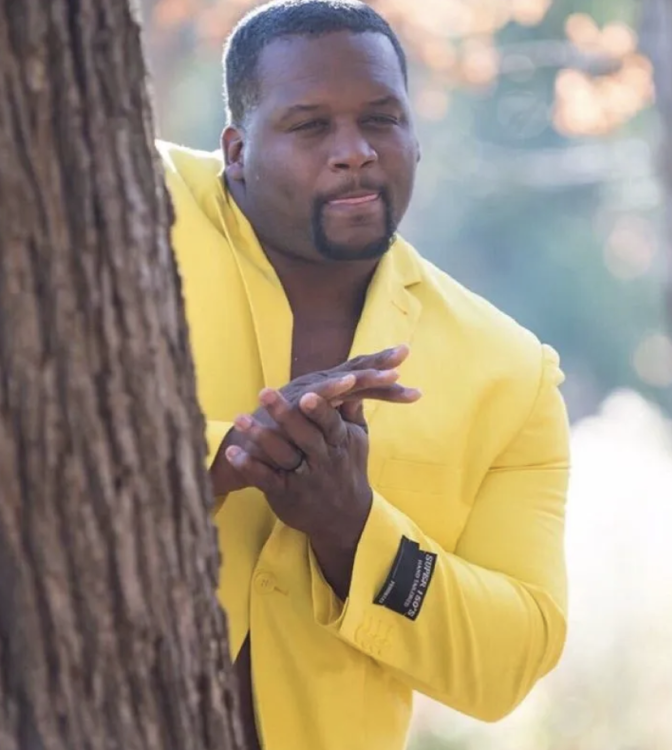Everything posted by Engorged Onion
-
David Schwarz
Well, we complain about our mids these days bombing in - back then we had some fairly decent kicks into the forward line as well. Darren Kowal*, Guy Rigoni* and Kevin Dyson*, that man with the biggest thighs ever... *insert more appropriate mids at your whim...
-
Welcome to Demonland: Xavier Taylor
Because you are mixing up your personal biases, and treating that mix as if it applies to this situation
-
AFL Draft 2025: Pick 30 (formerly 37)
Zee [censored] French 🇫🇷
-
Inside Access - Day 1 Pre Season
Psychological safety isn’t some soft, fluffy HR buzzword. On the field it’s actually a neurobiological performance tool. When players feel like they won’t cop it for making an error, their nervous system stays in mobilisation, not protection. Same behaviour—kicking, decision-making, taking the game on—but it feels completely different inside the body. One version is “I can try things,” the other is “I don’t want to stuff up.” The first one creates creativity and speed. The second one creates hesitation. That’s why good coaches let players take positive risks. You want your half-backs and mids reading the play, not overthinking whether the runner will be in their ear. If you’re not making mistakes, you’re playing too safe. You can’t win modern footy that way. And off the field, psychological safety is just leadership. Imagine if your boss was unpredictable, menacing, or only rocked up in a good mood after a win. You’d be walking on eggshells. Footy players are no different—they’re humans with nervous systems. Consistent, approachable leadership actually makes them consistent on game day. He’s giving them a sense of control and encouraging interaction. There’ll be time for the stronger, more demanding version when it’s needed—but if you skip the safety piece upfront, that louder version just becomes noise. This is how high-performance environments are actually built in 2025. Not fear. Not intimidation. Clarity + safety + challenge. In that order.
-
Farewell Christian Petracca
I do understand the notion of choice and how father/son works - I guess I was being a bit more nuanced around where CP5’s allegiance will end up…
-
Farewell Christian Petracca
As an aside from the other father son thread currently doing the rounds. Will Christian play 100 games for the Gold Coast, and... if selected, where would a son or daughter play. I cbf looking it up re: GAJr... he'd surely be in the same boat.
-
Any experienced players worth picking?
@Demonsone - I’m trying to figure out what your football philosophy even is. You spend half your time trashing players, coaches, and the FD — then turn around and make a thread like this? What the [censored] gives?
-
Dawn of a new Era - Paul Guerra article 18.10.2025
Most amusing post since I joined
-
Welcome to Demonland: Steven King
Following on, some other thoughts.... It’s an interesting tension, what we value in character on the field often isn’t what we reward ogg it. The qualities that make someone effective in AFL, so things like, aggression, risk-taking, and a willingness to experience pain and potential injury (as in, we wouldn't expect that of the 'general public)— don’t always translate neatly into the steadiness, reflection, and restraint we hope to see in life outside the game. For decades, AFL clubs (and sport more broadly) selected and celebrated players who could push past limits, dominate moments, and impose themselves. That’s the nature of sport.... it’s combative and instinctive. And those same instincts can sit uneasily in a world that is starting to more readily prize composure, empathy, and self-regulation. The same manner of toughness on the field can, off the field, become volatility... (and impact 'the brand', be it AFL, the club, or the individual), which then becomes a problem...So I get a little miffed when people expect one thing on the field, and then suprised about what occurs OFF the field... as though its a character flaw... Modern leadership and development have started to recognise that distinction, that character isn’t just one thing nor a permanent fixture. Context becomes the lever for change.... what’s needed on the field isn’t always what’s required off it. The real skill lies in knowing how to shift gears deliberately, to recognise the environment you’re in and respond with intention rather than habit. For me, that’s also where individual ownership matters. It’s not just on clubs or systems to manage that... it’s on each person to choose how they want to grow, and which parts of themselves they want to strengthen. In the end, that’s the essence of what I call 'the greatest skill' ™ 😆 — the ability to understand yourself deeply enough to adapt with intent. To know when to lean in, when to let go, and how to bring the right part of yourself to the moments that matter, given the context.
-
Welcome to Demonland: Steven King
Good question, and a fair one. Mihocek’s never really been the loud, front-of-room leader type AFAIK, but leadership today looks a lot different to what it once did. Our thinking around it has evolved a lot over the last decade, even though in hindsight it probably always should have been obvious. It’s less about title and more about presence, consistency, and influence. From all reports, he’s the kind of person who shows up the same way every day...disciplined, humble, and team-first. That sort of consistency/steadiness builds enormous trust. When someone like that joins a group, it quietly raises standards without noise...effort becomes normal, and the culture settles around reliability rather than words on a [censored] wall...
-
Building to our next flag
Welcome Matty- thanks for leading off your posting life with pessimism. You'll fit in with most of the folk on here just fine... Go Dees ps: @Demonland can we get some current coaching staff icons in play 🙂
-
The List Manager Tim Lamb
So which one is it? Screwed over? Or pragmatic trading?
-
Farewell Christian Petracca
- Bailey Humphrey
was assuming it was the nom de plume of @Demon Forever ...🤷♂️, who as @Tom Dyson suggested is doing some god level trolling...- Bailey Humphrey
- Farewell Christian Petracca
Ha, and then the criticism rolls from TL to JT!- Farewell Christian Petracca
Literally, or metaphorically? 😆- Farewell Christian Petracca
Agreed! And - did that need to be gendered? 😘 I'm sure there are some F.A.B folk on here of the same persuasion!- Farewell Christian Petracca
Anyone on board the 'This Tim Lamb fella is pretty savvy and has got a great deal, when GC have chose to hold someone against their will' train yet?- Farewell Christian Petracca
Potential 3 Firsts .... still... 'Sack Lamb!!'- Welcome to Demonland: Jack Steele
- Farewell Clayton Oliver
It needs to be put in this thread 😄 https://demonland.com/forums/topic/38236-when-will-melbourne-break-these-embarrassing-records/- Bailey Humphrey
Mostly here for the 'Go Dees' to neutralise any negative response to a post...- Bailey Humphrey
- Welcome to Demonland: Steven King
Forum handle to positioning statement checks out. - Bailey Humphrey







